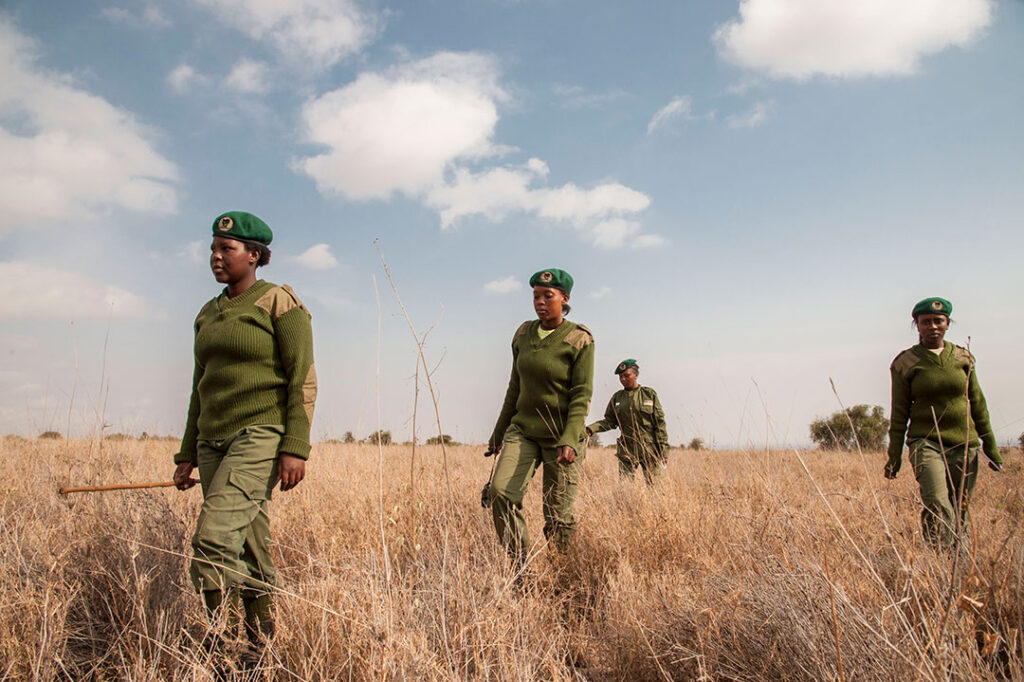ADF STAFF
Wearing an olive uniform blending into the verdant, thick brush, Ruth Sikeita raises her binoculars to observe a pack of zebras during a daily wildlife patrol.
The way she sees it, working as one of eight rangers in the International Fund for Animal Welfare’s (IFAW’s) Team Lioness patrol unit is a win-win-win.
“I look after wild animals, providing security for the wildlife, ensuring that they are safe,” she told IFAW.org. “It’s important because animals are like us. They need to be safe like us. They benefit us; tourists visit here because of the wild animals, and we are employed.”
Team Lioness is a trailblazer.
Created in 2017, it is one of the first all-female ranger units in Kenya. Lioness protects more than 60,700 hectares of community lands shared by the Maasai tribe and wildlife. It operates near Amboseli National Park in the shadow of Mount Kilimanjaro across the border in Tanzania.
The women risk their lives protecting animals from armed poachers and protecting themselves from the animals. They’ve also dealt with long-held stereotypes from some male rangers.
Pioneering diversity among the rangers was one of IFAW’s goals with Team Lioness.
“With this initiative, we not only want to empower the Maasai women to be actively involved in securing habitats and watching over wildlife, but to also bridge the gender gap in conservation,” Azzedine Downes, president and CEO of IFAW, told People Daily newspaper in Nairobi, Kenya.
It was a bumpy road at first.
“Initially men looked down on us,” Lioness leader Purity Amselet Lakara told People Daily. “They thought we were not up to the task. But after realizing we can do the job competently, they now respect us.”
The women of Lioness do better than that.
Sikeita, a 27-year-old mother of two, says seeing a Maasai woman brings comfort to the village women they visit regularly. Information passes freely, without fear.
It’s an advantage that helps Team Lioness stay ahead of poachers and village members who look to retaliate against elephants, lions, giraffes and cheetahs that kill their livestock.
“Imagine encountering a group of armed poachers while deep in the bushes, yet you are not carrying a weapon. Then taking cover in a hole or under a rock, where you are at a high risk of finding poisonous snakes,” Lakara told People Daily. “A lot of times, we deal with irate members of the community when their livestock is attacked by wildlife.
“It requires a lot of wisdom to calm them down, putting in mind that some are armed and could easily harm us.”
In addition to giving these women a sense of accomplishment and a boost of self-esteem, Team Lioness has given many the distinction of being the first in their families to be formally employed.
“Recruiting the female ranger unit is helping break cultural barriers by giving women an opportunity to access employment and be economically empowered,” Head Ranger Patrick Papatiti told People Daily.
“The perception that a girl cannot do certain jobs, such as being a ranger, has been challenged by Team Lioness.”

